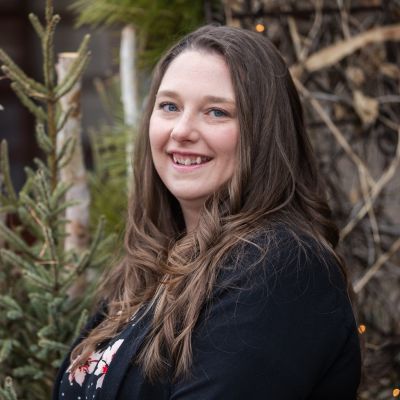
Mallory A. Dekker
Black Hills Studios of the Arts
Rapid City, South Dakota
The nonprofit Black Hills Studios of the Arts (BHSA) was born from a for-profit concept: Bringing excellent music instructors to one place to provide various music instruction. “This one-stop-shop allows parents of multiple children or multi-instrumental children to have a place to receive service for all of their music needs,” says Executive Director Mallory A. Dekker.
BHSA serves the community as an affordable music education facility. Currently, it has 110 private lesson students and reaches an additional 204 through its outreach program to private schools that cannot afford a full-time music educator. “I go to three private schools in the area where I teach general music classes and/or band,” Dekker says. “Sometimes I’m at a school for 4½ hours, other times, just 1 hour. Each school has its own curriculum written for them by me, and it usually incorporates a Christmas and Spring concert, and off we go!”
Dekker and her team are applying for grants for other outreach programs, such as a ukulele group for the Girl Scouts. This would require group lessons, teacher pay and all the ukuleles,” she says.
Because music is so important for emotional and mental health, not to mention physical health, BHSA made it a mission to make music affordable, and to work for students of all ages and for those with ADHD, autistic and Down syndrome. Several years ago, Dekker encountered a student with Down syndrome who wanted to play the clarinet. “Since I love learning about the brain and how it works, I dove into all the case studies and research that I could get my hands on, “ she says. “I spoke with the parents several times, and talked to several doctors and special education instructors. With the plethora of information that I had gathered, I made a system that works for this student — a coding system with some auditory training; using highlighters, numbers and listening exercises.”
After several years of study with Dekker, this student can play particularly well with minimum assistance. “It’s important to note that we develop a new system for each student, and that the student is part of the planning,” she says.
Some of the more common tools Dekker and her team uses to work with special needs students include graphic organizers, highlighters, concept maps, jumping jacks (sounds strange, but she says it works!), directed brain breaks and crayon-coding (a term that Dekker made up, which is essentially “color-coding with extra benefits”).
Another way to reach her students is through online teaching, which was a necessity during the pandemic. “Currently, we have students in rural regions, who are mere hours away, to several out-of-state students, a family in Germany, and one touring the world with her family,” Dekker says. “Most of these families got their start with us in Rapid City, then moved on, and we’re blessed that they chose to stay on with us!”
BHSA continues to grow, but Dekker has faced some limiting factors. Right now, there is more demand than instructors, and it’s difficult to find qualified people. “This demand proves that we are filling an important facet in our community. I just hope to continue to find amazing instructors so we can meet the needs of the area,” Dekker says.








